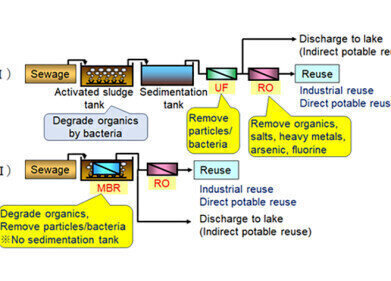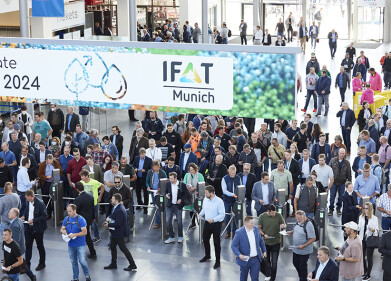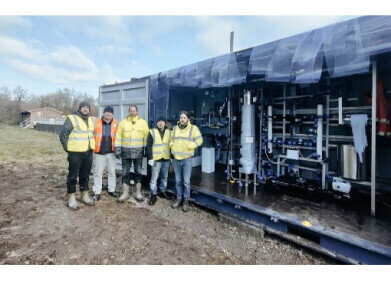-
 Toledo has been left without water following algae contamination
Toledo has been left without water following algae contamination
Water/Wastewater
Toledo left without water following algae contamination
Aug 05 2014
Toledo, Ohio, US, has been hugely affected by widespread pollution of its drinking water caused by an algae bloom. The growth of blue-green algae in the city's drinking water was reportedly caused by a combination of factors, including agricultural chemicals and climate change. The boom meant that residents were warned not to drink tap water over the weekend (Saturday August 2nd).
The algae in the water caused a microcystin contamination of the city's water reserves. This is an aggressive toxin that can cause vomiting and skin rashes. It was detected on Saturday by inspectors at the city's water processing plants, leading to warnings about contact with water from taps.
Drinking water for the residents Toledo is drawn from Lake Erie. However, the lake has become more and more polluted in recent years as a result of agricultural practices. Chemicals from agricultural operations have resulted in contamination of many of Ohio's Great Lakes, leading to a number of algae blooms.
According to the National Oceanic and Atmospheric Administration (NOAA), the algae in Lake Erie appears to be spreading to another bay, increasing the contamination. So far the city has had no drinking water for three days and it is unclear when the pollution will be dealt with enough to make the water safe to drink once more.
City residents have been warned not to boil the tap water, as this actually makes the toxin more concentrated, rather than killing it off. Boiling the tap water will only make it more deadly for humans. They have also been warned not to give the water to any pets, as it has been known to kill dogs and other animals.
The algae blooms affecting the Great Lakes are caused by an increase of phosphorus and nitrogen in the water, which are used in agricultural chemicals such as fertilisers. These can be washed into the lakes, making the water an ideal environment for algae. Climate change also aids the growth of algae, as the warmer temperatures further encourage growth.
Events
May 05 2024 Seville, Spain
May 13 2024 Munich, Germany
May 23 2024 Beijing, China
May 23 2024 Beijing, China
Jun 10 2024 Algiers, Algeria












